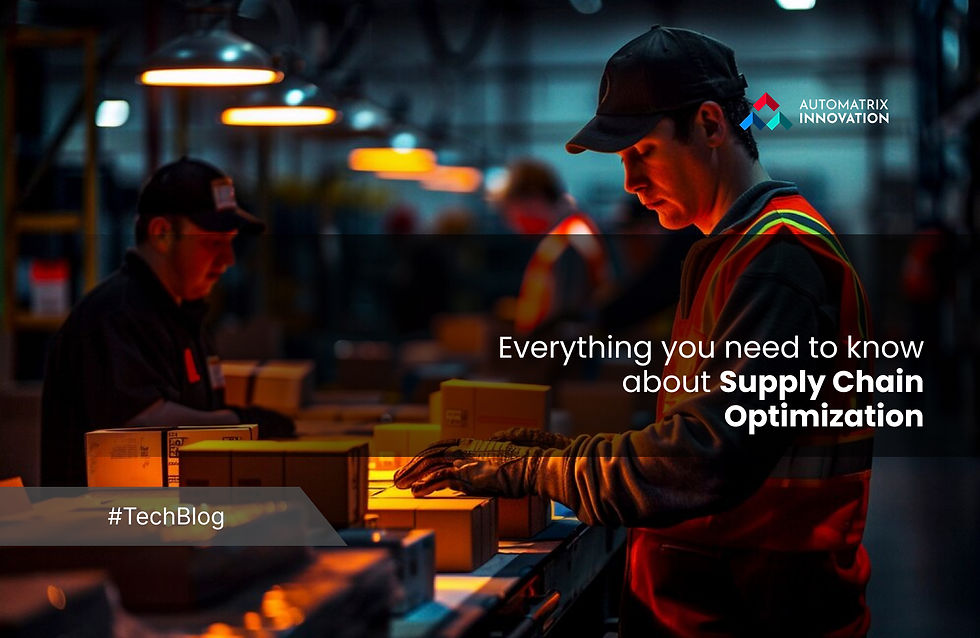Steel Industry is on the Verge of Hyper Automation
The steel industry is one of the most valuable and important..

Steel Industry is on the Verge of Hyper Automation
The steel industry is one of the most valuable and important industries in the world. It is responsible for the production of a variety of items, from buildings and bridges to automobiles and aircraft. The industry has come a long way in recent years, but it is now on the verge of a major breakthrough with Hyper Automation.
Hyper Automation is a term that is used to describe the use of multiple technologies to automate a process. This can include the use of artificial intelligence, machine learning, and robotic process automation (RPA).
The steel industry is poised to benefit immensely from Hyper Automation, as it will allow for the production of steel at a much faster pace and with less human intervention. This will be a major game-changer for the steel industry making it more efficient and also helping to reduce its outcomes for environmental impact.
Why the Global RPA and Hyper Automation Market is Set to Boom in the Next Few Years?
If you’re looking to implement automation in your business, then you’ll be pleased to know that the global RPA and Hyper Automation market is set to grow to a whopping $29.2 billion by 2028. That’s according to research from Markets and Markets, which also predicts that the industry will experience a compound annual growth rate (CAGR) of 22.2% between now and 2028.
So what’s driving this impressive growth?
Well, for one thing, businesses are increasingly recognizing the benefits of automating repetitive tasks and processes. This not only frees up employees to focus on more value-added activities, but it can also help to improve accuracy and efficiency levels across the board.
Additionally, as artificial intelligence (AI) and machine learning technology become more sophisticated, they are opening up new possibilities for automating even more complex tasks.
So if you’re looking to get ahead of the competition in the years ahead, now is the time to start investing in RPA and Hyper Automation solutions.
Hyper Automation And Steel Industry
This shift is driven by several factors, including the increasing complexity of businesses, the growth in digital services, and the need for faster response times. In addition, employees are becoming more mobile and want to be able to work from anywhere in the world.
Hyper Automation offers a solution to these challenges by automating business processes using advanced robotics technology. This allows businesses to streamline their operations while providing improved customer service and faster response times. This reduces employee workloads by automating repetitive tasks and eliminating human error.
This type of automation has the potential to transform the steel industry by making production more efficient and reducing costs. In addition, Hyper Automation can help improve quality control and safety in steel plants.
There are already some examples of Hyper Automation being used in the steel industry. For instance, ArcelorMittal, one of the world’s largest steel producers, is using automation technology to optimize its production process. Additionally, Hyper Automation is incredibly accurate; as a result, there’s little chance for errors or mistakes. This makes it an ideal solution for companies that need to maintain high standards of quality control.
If you’re looking for a way to improve your business efficiency and ensure that your products are of superior quality, then Hyper Automation is worth considering.
Benefits of Hyper Automation in the Steel Industry
This has already had a positive impact on other industries, such as manufacturing and logistics. The benefits for the steel industry are similar: improved productivity, automated processes, and better decision-making.
Here are five reasons why Automation will have a significant impact on the steel industry:
Improved Productivity
By automating manual tasks, Hyper Automation can increase productivity by up to 50%. This increased efficiency will result in lower production costs and higher profits for businesses.
Automated Processes
Hyper automation can also eliminate or reduce the need for human error, which leads to improved safety standards and decreased worker injuries. In addition, it can help streamline business operations and speed up decision-making times.
Increased Efficiency
With Hyper Automation, machines can be programmed to work faster than humans can by automating tasks that would traditionally require human input or judgment. This increased efficiency leads to decreased production time and cost savings for companies who adopt it.
Improved Quality Control
By automatically identifying potential problems early on in the manufacturing process, this helps ensure products meet customer expectations without any errors or defects. This improves quality control while reducing costs associated with recalls or product returns.
Greater Flexibility
Hyper Automation allows companies to react quickly to changing market conditions by automatically adjusting processes according to real-time data streams.
Conclusion
It is the key to unlocking higher levels of efficiency and productivity in the steel industry. By implementing these technologies and processes, steel companies can achieve significant cost savings and improved quality control. They also need to focus on developing a skilled workforce that can operate and maintain the new systems. RPA technology is adding the power of automation to your business
With the right investments and focus, the future looks bright for the steel industry that is willing to invest in Hyper Automation.




.jpg)



